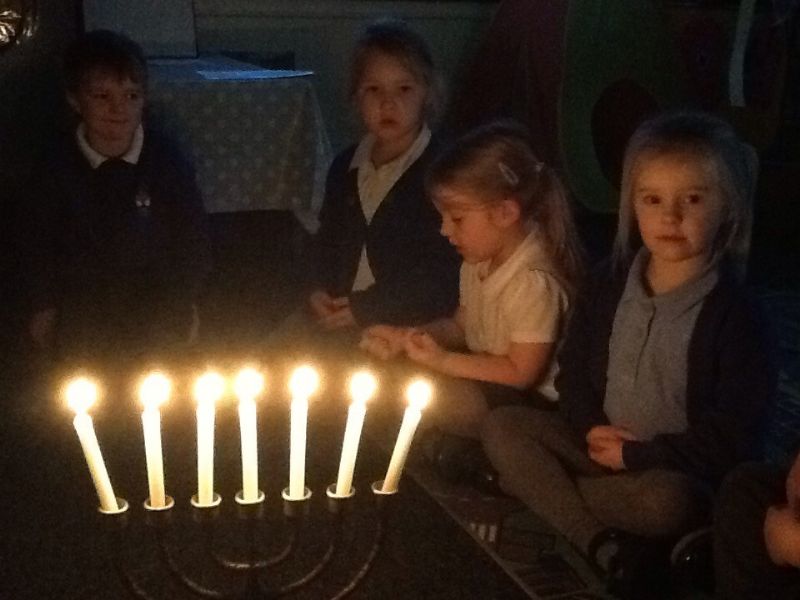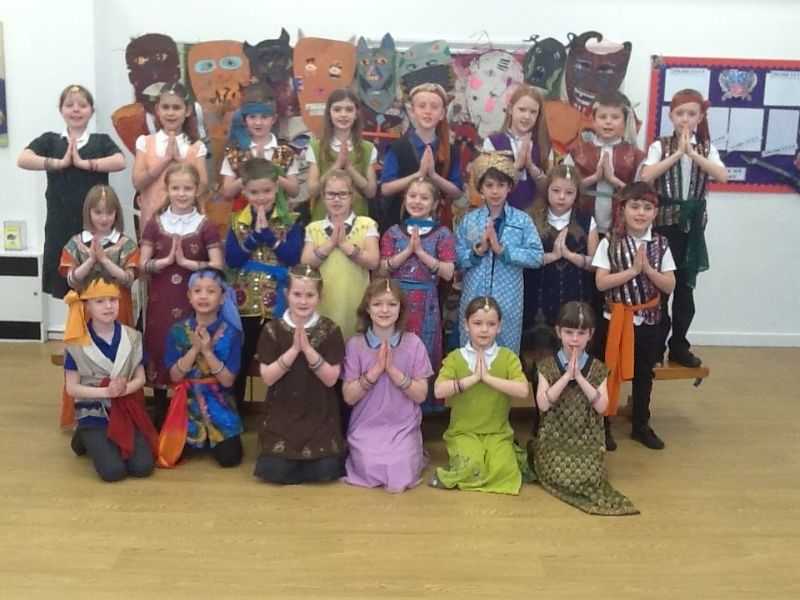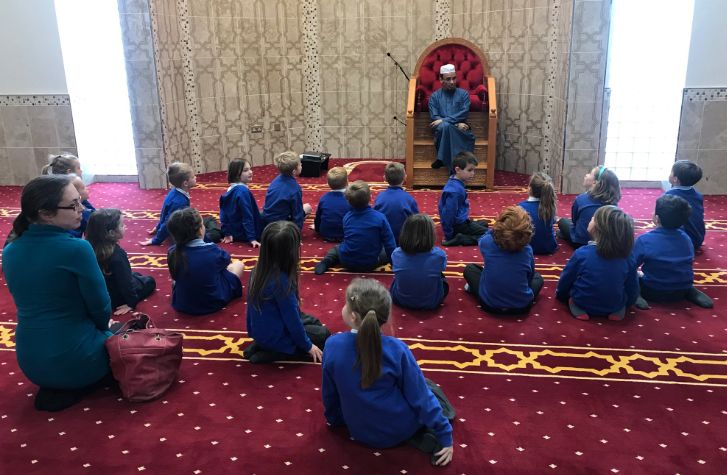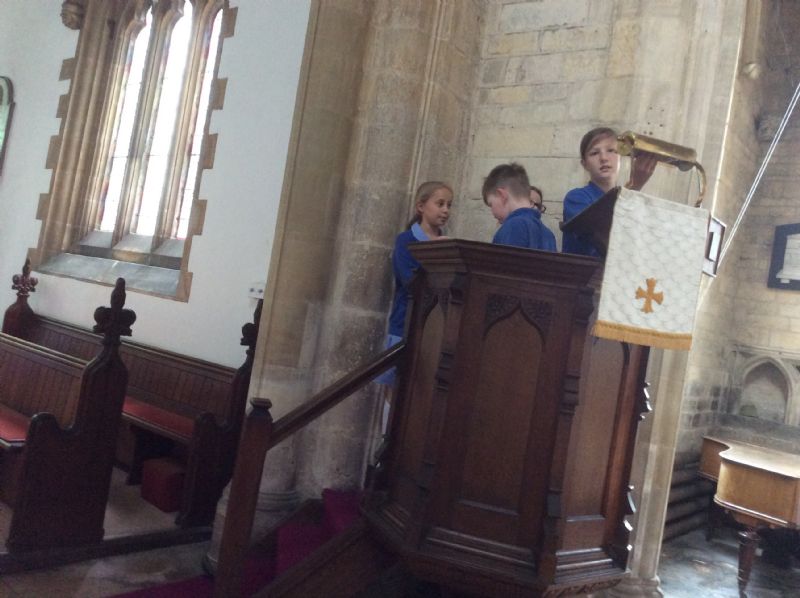
'Believe, Excite, Succeed, Together'
Religious Education
At Welbourn Church of England Primary School we learn R.E to help us hold balanced and well informed conversations about religion and belief.
We learn R.E through these principles:
- Theology – believing
- Philosophy – thinking
- Human/ social science – living


Intent – view our detailed Long Term plans for each Key Stage. These include:
- The Lincolnshire Agreed syllabus for Religious Education
- Knowledge objectives
- Key concepts
- Beginning each new area of enquiry with a text to engage and "hook" the children
- Key stories, symbols or figures.
- Tier 2 Key vocabulary
- Key visits/ visitors/ places of worship
The R.E curriculum is planned systematically, using a spiral approach and through:
4 key areas of enquiry of the agreed syllabus:
- God/Ultimate Reality
- Being Human
- Community
- Life Journey
How does this plan work?
In this plan the above areas of enquiry are approached through four key concepts, (3 concepts covered in KS1) to help ensure coherence, i.e. threads that run through the curriculum. These are:
- Belief and values: enquiry area 1: What do people believe about God?
- Belonging, community and identity: enquiry area 2 - How faith and belief affects the way people live their lives.
- Expression, experience and the sacred place: enquiry areas 3 and 4 - Expressing beliefs; being human, life journey.
- Knowledge and truth:
These concepts will be displayed in each classroom for teachers and children to refer to and make links through.
Implementation
Prior to the topic
- Children will complete a pre learning task to see what they already know and remember, this will act as a baseline but teachers must consider the previously taught knowledge and skills already taught in the curriculum.
During a topic
- At the beginning of a topic a new text will be shared which links to the key concept and throughout the topic, children will consider and recap key knowledge about the key religion or concept.
- Each lesson children will be reminded of the key knowledge that they learnt previously and how this links to current learning.
- Children will use low stakes testing throughout the topic to recall key information.
- Specialist key vocabulary will be explicitly taught at the beginning and throughout a topic.
- Lessons will include discussion, debate, drama, role play.
- Children will be encouraged to think critically and reflect, using empathy.
- Children will be encouraged to interpret, analyse and evaluate big ideas and concepts.
- Lessons will be delivered through carefully considered content, resources and perspectives ensuring that the children experience a rounded view of each religion and non-religious beliefs.
- Children will be encouraged to make connections and comparisons, follow investigations and enquiry.
- Children will be encouraged to use a range of sources and artefacts to access information and enhance their learning.
- Children will explore a range of religious and sacred texts.
- R.E learning will be presented in a range of ways – this will include using a range of cross curricular opportunities such as IT, maths, writing, art.
- Children will be expected to create an extended piece of writing at least once per half term.
- Teachers will adapt learning to meet the needs of all children, using differentiation and adult support.
- Elaborative questioning, using Blooms taxonomy, will be used to challenge pupils and discuss big ideas.
- Trips and visitors will be used to enhance learning experiences.
- Learning walls will include the topic title, key vocabulary and key facts and artefacts to scaffold learning.
Impact
We monitor the impact of children’s learning through:
- A reflection and evaluation of standards against the learning outcomes (LTPs)
- Tracking pupil knowledge in pre and post assessments.
- Tracking pupil knowledge in pre and post assessments, including use of low stakes testing.
- Children will add to their pre learning on a weekly basis to recall key knowledge.
- Children will self assess against the key knowledge that they have been taught.
- Teachers will assess against the key knowledge and skills, which creates an overview of whether the children are working at age related expectations or not.
- Pupil discussions
- Monitoring books.
Part of the enrichment of R.E is visiting special places of worship and inviting visitors into school. We also enjoy learning about religious and non religious celebrations.


Please click on the link to access the Whole School Curriculum overview for R.E 2024-2025
RE LTP Topaz Class Cycle B revised 4-2025

